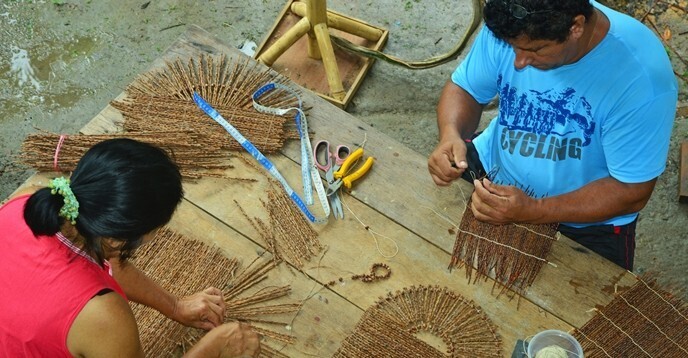
EU adopts new rules to significantly cut packaging waste with re-use targets
The European Union has formally adopted a regulation on packaging and packaging waste. The new ...

The Sustainable Amazon Foundation (FAS) – a Brazil-based non-profit organization that supports education and sustainable livelihoods of Amazon remote communities – won the 2019 UNESCO-Japan Prize on Education for Sustainable Development (ESD).
FAS copped the award for its program on Relevant education for the sustainable development in remote Amazon communities which focuses on forest-based income generation, environmental conservation and quality of life with the purpose of ‘making the forest worth more standing than cut’.
Funded by the Government of Japan, the UNESCO-Japan Prize showcases and rewards outstanding ESD projects and programs with an emphasis on innovation and potential for transformation. This year’s three winners received $50,000 each during a ceremony at UNESCO Headquarters in Paris on November 15.
FAS was created in 2008 and currently works in a territory of 10.9 million hectares across the Amazon region. It has invested over $85m in relevant education, with a focus on grassroots empowerment and sustainable supply chains. The program is implemented in 581 remote communities through capacity-building and grassroots empowerment. Nine Conservation and Sustainability Centers throughout the Amazon serve as platforms to implement people-centered solutions for sustainable development. The centers offer support for education and activities directed towards environmental education, traditional knowledge, and sustainable management of natural resources.
Roberto Brito, a community leader and entrepreneur who participates in FAS’ programs, said: “Lack of education opportunities used to drive people towards illegality. Today it is different. We have access to education, knowledge and new technologies. Our children have new opportunities that we did not have when I was young. Our children feel proud of our culture and communities”.
The Foundation’s General Director Virgilio Viana, who represented FAS at the award ceremony, said: ‘When most people think of the Amazon they think of the trees, deforestation or the wildlife… and often forget that there are more than 34 million people living there. Our strategy is to take care of people that take care of nature.”
“Our approach is to engage indigenous peoples and traditional populations in long term programs that can survive beyond the lifespan of projects and governmental mandates. Communities need small and simple solutions that need to be designed, implemented and evaluated through participatory approaches.”
The Amazon forest faces a range of internal and external threats. “Externally global climate change leads to increasing frequencies of forest fires. The ever-growing demand for commodities puts further pressure on deforestation. Internal threats are driven by local economic gains derived from illegal land-grabbing and logging,” said Virgilio. “Cattle and soya bean farming are highly profitable and increase pressure on deforestation.
“The focus of our work is to provide education opportunities that combine traditional knowledge with modern science and technology. One of our challenges is to avoid brain drain of traditional populations migrating from forest to urban areas, particularly young people seeking education. We provide education opportunities in the communities and empower them to develop alternatives to improve their livelihoods without migration. We offer education opportunities that result in the reduction of deforestation and fires, while at the same time increase income from standing forests”.
FAS’ work includes fisheries,forest management and sustainable tourism which has had success in increasing family income and decreasing the deforestation rate. For its work FAS has already received the Calouste Gulbenkian Award (2016); the Top NGO in Brazil for the Amazon (2017 and 2019); and the SDG Brazil Award (2018) among others.
“Poverty is the biggest enemy of long-term conservation because it makes people focus on short-term goals whereas sustainability is focused on the long-term. We want to take care of people so that they in turn can be empowered in their role as guardians of the forest”, said Virgilio. “For that we offer a broad education approach that ranges from early childhood to adults and senior citizens”. Within the framework of the 2030 Sustainable Development Agenda, FAS has a strategic plan to bring its work to a larger scale, across continental Amazon.
The European Union has formally adopted a regulation on packaging and packaging waste. The new ...
Inaugurating the Abydos Solar Power Plant in the Upper Egypt governorate of Aswan represents a ...
Businesses that fail to adapt to climate risks like extreme heat could lose up to ...


اترك تعليقا